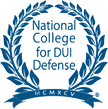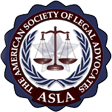The Government’s Power to Seize
Government agencies have certain powers to seize instruments used in the performance of a crime as well as unlawful contraband, guns, drugs, and other goods. State and federal governments may also take possession of your property or money if it was acquired through specific criminal actions. Asset forfeiture can occur under both civil and criminal laws. Under civil forfeiture actions, your property itself is the object of the lawsuit. Criminal forfeiture actions coincide with the sentencing phase of your trial after conviction. If you are dealing with a potential federal civil forfeiture case, give a Seattle forfeiture defense attorney from Emerald City Law Group a call today.
In asset forfeiture cases in the state of Washington, there are three categories of property subject to forfeiture under the law, including:
- Proceeds from unlawful activity – property that stems from or can be linked back to illegal activity
- Contraband – property that is illegal to own such as illegal drugs
- Tools used to commit an offense – Instruments or property utilized to carry out criminal activity
The laws of each type of forfeiture case vary. Therefore, it’s important to examine your case in more detail. A skilled Seattle forfeiture defense attorney from Emerald City Law Group can help you understand the possible consequences and legal defenses of any forfeiture action taken against you and your property.
Washington State Civil Forfeiture Laws
The state of Washington has the power to seize property associated with illegal activity through a civil action. As the owner of such property, it’s important to know under what circumstances this seizure can be performed. Civil forfeiture actions in Washington are not leveled against the owner of the property, but against the property itself.
In order for the state government to gain access to the property, they must provide proof through a preponderance of the evidence that the property has a connection to your alleged criminal activity. The government can meet the preponderance of the evidence if it can demonstrate the property was most likely connected to the commission of a crime.
If the government proves through the above standard that your property is associated with a crime, you can then exercise certain recourse to recover property. With the help of an asset forfeiture attorney, you can argue that you have no involvement in the alleged criminal activity.






